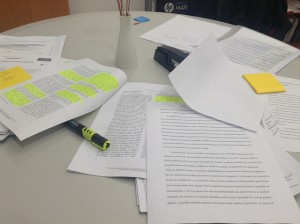 The Journal of Clinical Investigation has retracted a 2004 paper by Jacob Hanna, a highly cited stem cell researcher in Israel whose work has been dogged by questions about its validity.
The Journal of Clinical Investigation has retracted a 2004 paper by Jacob Hanna, a highly cited stem cell researcher in Israel whose work has been dogged by questions about its validity.
Questions about the work, and other articles on which Hanna was an author, were raised on PubPeer last November. This is his first retraction.
The retraction stems from “a number of figure irregularities;” the authors say they were “inadvertently introduced,” and subsequent work has supported their data and conclusions. However, due to the “number of serious mistakes,” the JCI editorial board chose to retract the article. Hanna and corresponding author Ofer Mandelboim at The Lautenberg Center for General and Tumor Immunology — part of Hebrew University, in Jerusalem, where Hanna used to work — say they have accepted the decision.
Hanna, currently at the Weizmann Institute of Science, studies ways to reprogram cells to become more versatile stem cells. He also spent time as a postdoc at the Whitehead Institute in Cambridge and Mount Sinai, in New York City.
Six of Hanna’s papers have been cited more than 500 times, according to Thomson Scientific’s Web of Knowledge. The most-cited, with more than 1,000 citations, was a 2008 Nature paper.
The retracted article, “Novel APC-like properties of human NK cells directly regulate T cell activation,” has been cited 121 times, according to Thomson Scientific’s Web of Knowledge.
The retracted paper examined the early steps of an immune response involving natural killer (NK) cells and antigen-presenting cells (APCs). From the abstract: Continue reading JCI retracts paper by stem cell biologist Jacob Hanna, citing “figure irregularities”
![]() Onward State, an alternative student news website for Penn State University, has pulled an article about a student psychic for promoting “one of the most fraudulent, predatory practices around.”
Onward State, an alternative student news website for Penn State University, has pulled an article about a student psychic for promoting “one of the most fraudulent, predatory practices around.”







